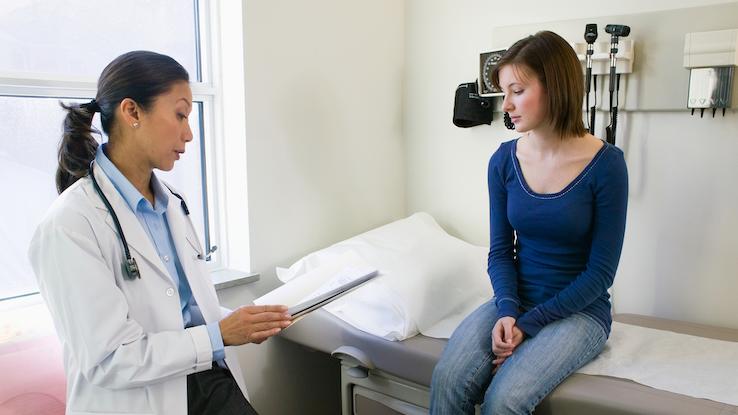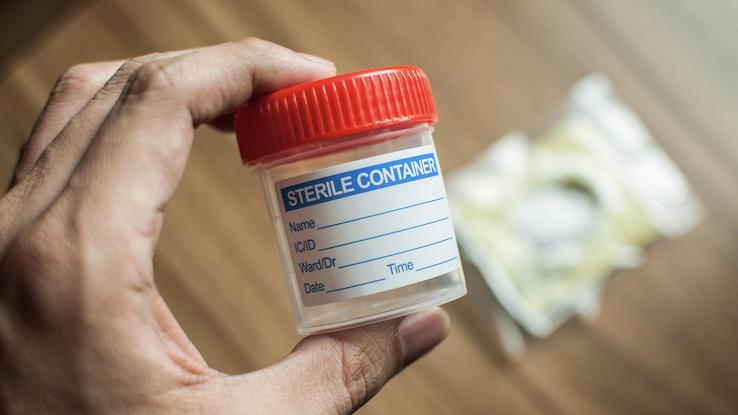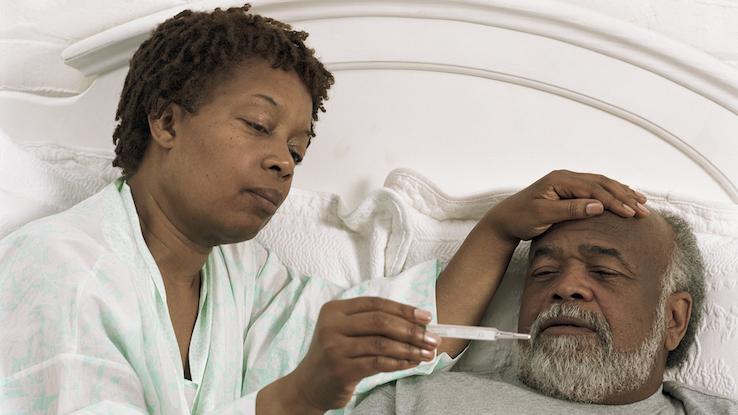
Kidney infections (also called pyelonephritis) are a type of urinary tract infection (UTI). They happen when harmful bacteria move up into the kidneys. Kidney infections can usually be treated with antibiotics — but without treatment, they can cause serious damage and other health problems. That’s why it’s important to know the symptoms and get treatment right away.
Back and Flank Pain

Back pain and pain in the flank area (the sides of the lower back and abdomen) are common signs of a kidney infection. Some people also have pain in the groin. Pain in these areas doesn’t always mean a kidney infection — but if you have back or flank pain along with a fever or other symptoms, call the doctor right away.
Pain When Peeing

Pain when peeing and trouble peeing are common symptoms of kidney infections and other UTIs. Some people notice a burning feeling when they try to pee. It’s also common to feel like you need to pee again right away, even after you just went. These symptoms can also happen with other types of UTIs, so it’s important to see your doctor to find out what’s causing your symptoms.
Bloody, Cloudy or Foul-Smelling Pee

Similar to bladder infections, kidney infections can cause bloody, cloudy or foul-smelling pee (urine). Some people notice that their pee has a pinkish color or looks cloudy or milky in the toilet. There may be pus or blood in your pee, or it may have a foul or unusually strong smell.
Fever and Chills

Fever and chills are common symptoms of a kidney infection. Some people may also have nausea and vomiting. If you think you may have a kidney infection and you have a fever of 102 degrees Fahrenheit or higher, get medical help right away.
Confusion

Kidney infections can also cause mental confusion, especially in people over age 65. Older adults may have symptoms like hallucinations, jumbled speech or dizziness. Some may also lose their balance and fall. Confusion is often the only symptom in older adults with kidney infections — so it’s easy to mistake for aging-related memory issues or early signs of dementia.
How to Prevent Kidney Infections

Follow these tips to help prevent UTIs and kidney infections:
- Drink lots of fluids.
- Pee whenever you need to — don’t hold it in.
- Always wipe from front to back — never from back to front.
- Try to pee soon after sex.
Remember, it’s important to treat kidney infections right away before they cause serious health problems. Knowing the common signs and symptoms of kidney infections can help you get the treatment you need.
Resource Links:
- “Kidney Infection” via FamilyDoctor.org
- “Definition & Facts of Kidney Infection” via National Institute of Diabetes and Digestive and Kidney Diseases (NIDDK)
- “Symptoms & Causes of Kidney Infection” via NIDDK
- “Kidney Infection” via Mayo Clinic





